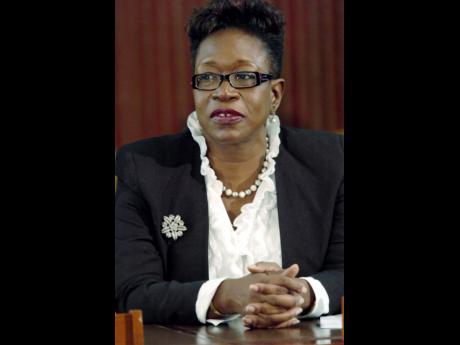Youth rank politicians lowest in integrity
Of the various occupational groups, politicians are ranked by youngsters as the most unfavourable batch in the area of integrity, according to the findings of a survey conducted by the Office of the Contractor General (OCG), during the period November 17, 2016 to December 2, 2016.
Funded by the UK Department for International Development, the study entitled "Youth and Corruption in Jamaica", represents the views of 1,262 youngsters, ranging ages 10-19 years.
A fractional 37.1 per cent of those quizzed viewed politicians as having integrity.
"The perception that you grow up with, that politicians are less than ethical, more often than not, will prevail," Director of Public Prosecutions (DPP), Paula Llewellyn told The Gleaner at the official unveiling of the survey findings at the OCC at 16 Oxford Road on Tuesday.
In indicating that such belief was worldwide, Llewellyn stated that such notions aren't guided by any evidence.
While noting the scepticism youth have towards politicians, State minister in the ministry of national security, Pearnel Charles Jr urged local leaders and the general public to pave a path of transparency and accountability for children to emulate.
"We have to put in place the necessary mechanisms to identify and monitor unethical behaviour to detect breaches and encourage our people, especially our leaders to do the right things as an example for our youth."
Ethical failure
"The misuse of power in any shape or form, for personal gain, is an ethical failure triggering negative and far reaching social and economic impact that has a domino effect on our society."
Charles further implored citizens to consciously monitor their individual actions so as to rid society of corruption.
Teacher, 86.5 per cent; medical doctor 85.9; athletes 81.8 per cent; pastor 80.6 per cent and soldier 76.8 per cent were seen as those possessing good integrity.
On the lower end of the scale, the police saw 47.7 per cent, while DJs/artistes/ music producers reflected 58.6 per cent.
Males comprised 46. 1 per cent of the target group while females registered 53.9 per cent were believed to have integrity.
A conclusion drawn from the study is the launching of an educational programme to reinforce the message that integrity starts from the home and the education system is also pivotal re self development.


